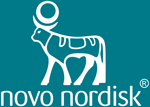• While people with other chronic diseases, such as diabetes mellitus, have access to a wide range of treatment methods, experts and contact points, this is not – or only marginally – the case for people with obesity. Even among physicians and other professional groups, there are completely outdated ideas about the nature of the disease and available treatment options. The causes of this disease are not taught at universities and are not known to the majority of the medical profession.4
• The overwhelming majority of those affected do not receive a guideline-based therapy – although one does exist. This is unimaginable in the case of recognised diseases.
• Useful treatment methods exist but are only reimbursed to a limited extent and on a case-by-case basis. Drugs are completely excluded from reimbursement.
• Obesity is not recognized as a chronic disease in Germany, rather it is still classified as a lifestyle disease. At the same time, treatment in the concomitant and secondary diseases (e.g. diabetes mellitus, coronary heart disease, high blood pressure) is running at full speed and absorbs resources amounting to billions.5 It is obvious that obesity treatment – and also its recognition as a chronic disease – would make the system as a whole, much more efficient. Overweight accounts for 10.7 % of Germany’s health expenditure.6
• Obesity is predominantly classified as a “lifestyle phenomenon” in terms of health policy as well as treatment. In today’s social paradigm, patients are expected to solve their “lifestyle problem” independently and “alone”, using personal resources.
• People with obesity are exposed to huge stigma with terms such as “weakness of will”, “self-inflicted” and “lack of discipline” used regularly.
• Due to the prevailing paradigm and prejudices experienced by people with obesity, self-stigmatisation becomes deeply entrenched. Their value as a person in society is no longer recognised; guilt and shame weigh heavily on most of those affected. This results in the isolation of people with obesity who rarely seek help, are trapped by their shame and often simply give up.

The DAA is committed to:
• Held inaugural meeting to agree on mission, vision and plans
• Signed Letter of Intent (LOI) with most important stakeholders
• Developed national briefing book on obesity, calling for action
• Held an expert talk at Parliament with various Members of the German Parliament (MdB)
• Onboarded additional organisations
• Held goals workshop at German Parliament and established working groups to drive action
• Cooperation with International Obesity Networks (e. g. OPEN)
Status: April 2020
• Alexander Krauß: Member of the German Parliament (MdB)
• Melanie Bahlke: 1st Chairwoman of the Obesity Surgery Self-Help Germany e. V. (AcSD e.V.)
• Andreas Herdt: 2nd Chairperson AcSD e.V.
• Dr. Christine Stier: Member of the Board of the Working Group Metabolic Endoscopy of the German Society for Endoscopy and Imaging Techniques e. V. (DGE-BV) and Committee Member of the Bariatric Endoscopy der International Federation for the Surgery of Obesity and Metabolic Disorders (IFSO)
• Prof. Martina de Zwaan: Chairwoman of the German Obesity Association (DAG)
• Dr. Stefanie Gerlach: Board of the German Obesity Association (DAG), Media-Spokesperson
• Dr. Susanne Weinbrenner: Deutsche Rentenversicherung (DRV, German Pension Insurance)
• Dr. Christina Holzapfel: Working Group Obesity, Professionals Association Oecotropholgie e. V. (VDOE)
• Dr. Andrea Lambeck: Managing Director, Professionals Association Oecotropholgie e. V. (VDOE)
• Thomas Hegemann: Organizational and strategic developer and coach, expert for the German healthcare system, Managing Partner CGC GbR
• Dr. Robert Haustein: Head of Berlin Office, Market Access & Public Affairs, Novo Nordisk Pharma GmbH
• Daniela Rimpf: Patient Relations Manager, Novo Nordisk Pharma GmbH
• Oliver Martini: Director Government Affairs & Policy, Johnson & Johnson GmbH
To find out more, please contact the DAA Secretariat
1 Schienkiewitz A et al. (2017). DOI 10.17886/RKI-GBE-2017-025.
2 Effertz T et al. (2015). DOI 10.1007/s10198-015-0751-4.
3 Whitlock G et al. (2009). DOI 10.1016/S0140-6736(09)60318-4.
4 Caterson ID et al. (2019). Diabetes, Obesity and Metabolism; 21(8): 1914-1924.
5 Klein S et al. (2016). Weißbuch Adipositas, S156.
6 OECD (2019). The Heavy Burden of Obesity. Oe.cd/obesity2019.






